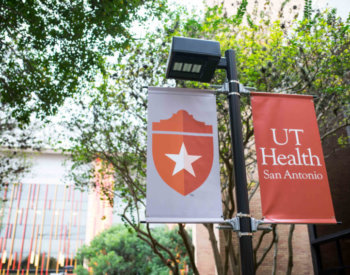H-E-B joins UT institutions to raise money for cancer patients
August 23, 2017
H-E-B is launching a fundraising campaign with The University of Texas MD Anderson Cancer Center to help create a future free from cancer.


Category
August 23, 2017
H-E-B is launching a fundraising campaign with The University of Texas MD Anderson Cancer Center to help create a future free from cancer.

August 18, 2017
Cancer prevention programs and initiatives to recruit faculty to UT Health San Antonio got a $3.5 million boost from the Cancer Prevention & Research Institute of Texas (CPRIT). The awards, announced Aug. 16, bring total funding to UT Health San Antonio by CPRIT to about $74.6 million since the program began in 2008. The UT Health Cancer […]

August 15, 2017
Kumar Sharma, M.D., was named chief of the Division of Nephrology and vice chair for research in the Department of Medicine.

August 8, 2017
Scientists at UT Health San Antonio have discovered why oxamniquine, a drug used to treat a global infection called schistosomiasis, is only effective against one species of the parasitic flatworm.

August 2, 2017
When 6:30 p.m., Monday, Sept. 18 Where Holly Auditorium Details See life through the eyes of a woman with Alzheimer’s disease in the documentary, “You’re Looking at Me Like I Live Here and I Don’t.” After the film, UT Health President William Henrich will lead a panel discussion featuring: Dr. Bess Frost, an Alzheimer’s research […]
August 1, 2017
The University of Texas Health Science Center at San Antonio has published its Strategic Vision for fiscal years 2018-2022.
